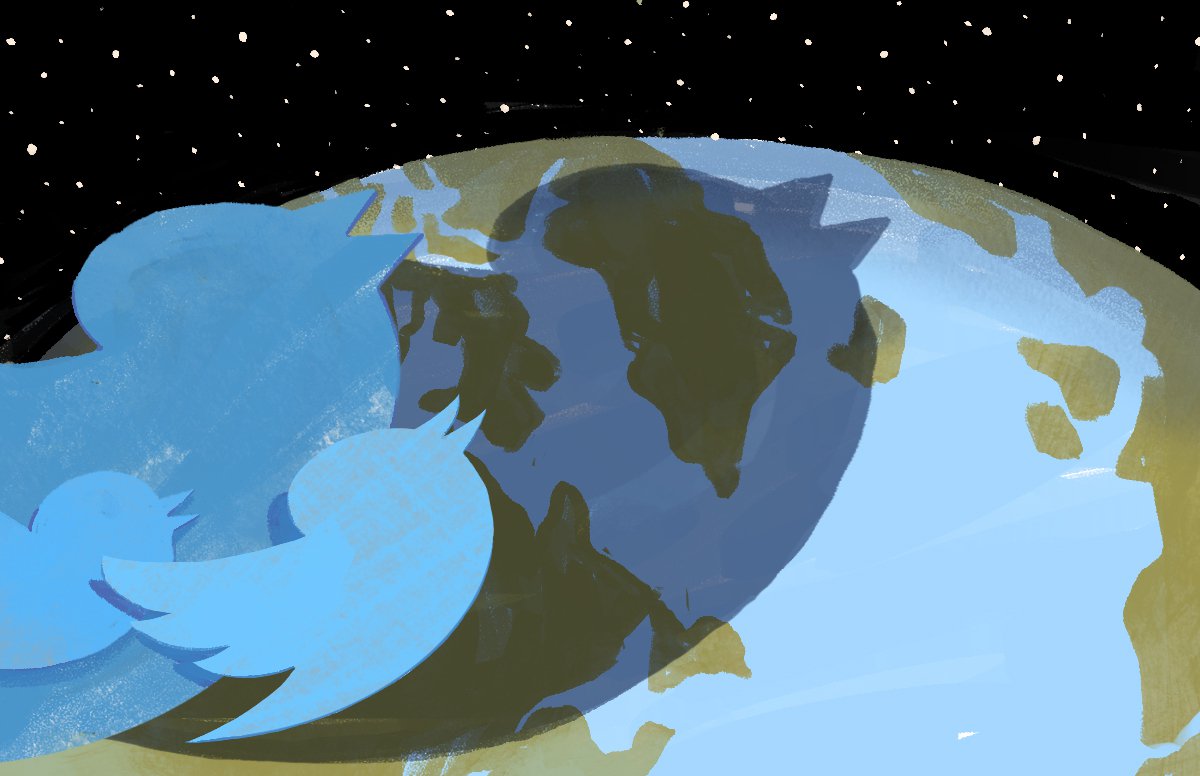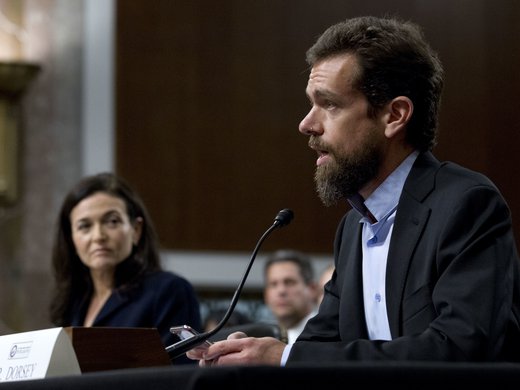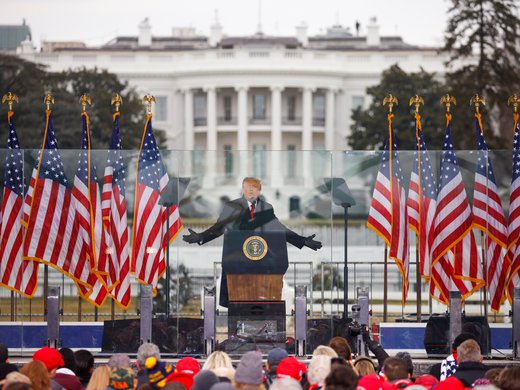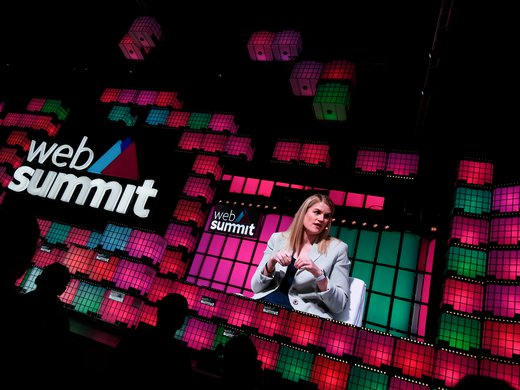In February 2021, the Indian government ordered Twitter to take down 500-plus accounts. The accounts contained Tweets critical of the government’s brutal response to farmers’ protests that had brought New Delhi to a standstill. The government threatened Twitter’s local employees with imprisonment if the platform did not comply — so it did. No legal recourse was available for the affected account holders, nor for any other Twitter users, to challenge this blatant muzzling of freedom of expression by Twitter and the Indian government.
Half a world away in Canada, we have launched two lawsuits that could provide a basis for a legal response.
The story begins with a documentary film, The New Corporation, produced by Grant Street Productions, and written and co-directed (with Jennifer Abbott) by Joel Bakan, co-author of this article. The film is based on Bakan’s award-winning book of the same name and is a sequel to his 2004 book and film, The Corporation.
Both films and books expose the corrosive impact on democracy of large corporations’ outsized economic power. Financed by the Canadian broadcaster Crave, along with Canada’s top film-funding agencies, The New Corporation premiered at the Toronto International Film Festival in 2020, and has since screened at numerous film festivals, as well as at scholarly conferences and events held by non-governmental organizations. The film, currently in distribution in Canada and beyond, has been lauded by critics worldwide.
How curious it is, then, that Twitter — purportedly a venue of and champion for freedom of speech — should censor a trailer for this film. But that is what occurred in December 2020 and continues to this day. The following narrative traces this large, powerful corporation’s arbitrary suppression of the right to free expression of an independent artist and thinker, and the fight to overturn it.
Arbitrary Rules, and a Dangerous Lacuna
Bakan’s film premiered September 13, 2020. Not long after that, on November 18, the Canadian digital marketing firm Cool World attempted to buy, on behalf of the film’s producers, some promoted Tweets and ads to advertise the film’s trailer. Twitter refused the purchase request on that same day. When Cool World asked why (through Jane Tattersall of SqueezeCMM, a Cool World subcontractor), Twitter told Tattersall that the trailer — which is roughly two minutes long and features activists and scholars such as Greta Thunberg, Michael Sandel, Vandana Shiva, Alexandria Ocasio-Cortez and Grand Chief Phillip Stewart — violated its ad policies.
The ensuing chain of e-mails between Tattersall and Twitter is Kafkaesque. The first from Twitter to Tattersall, in response to her original inquiry, stated simply, “Tweets can be disapproved if they are found to violate the Twitter Ads Policies,” and included a link to the platform’s policy on targeting “Sensitive Categories.” Tattersall replied by asking what content Twitter found problematic. “Our team reviewed your content and confirmed that it violates our Political Content policy,” Twitter responded. Tattersall then replied again, pointing out, “The video is a trailer for a documentary film about abuse of power of corporations…it is not advocating for any candidate or any election, or appealing for financial support, votes, or any specific legislative advocacy.” Twitter’s response: “Our team manually reviewed your content and confirmed that it violates our Inappropriate Content policy.”
So, now Twitter had offered three different reasons for rejecting Cool World’s promoted Tweet. Presuming responses to this point were being generated by customer service email bots, Tattersall asked to communicate with an actual human being. A Twitter employee, Abigail Scott, responded, on December 1, 2020. “Taking another look,” she wrote to Tattersall, “I am confirming that it seems that the tweets have been halted for violating our sensitive/inappropriate content as well as our political policy.”
That same day, Tattersall asked for further clarification, pointing out that the documentary had been deemed credible — indeed, had been lauded — by numerous mainstream media outlets, as well as by the documentary film community. Scott wrote back later that day:
Regardless of whether or not a film is acclaimed or whether or not it’s a documentary, the same policies must be adhered to. One of the reasons here is that Twitter does not have the resources to deem all of the content on our platform as “credible” as many areas are quite nuanced and subjective. As mentioned on our policy page, Twitter globally prohibits the promotion of political content.…Looking at the trailer it does seem that there are some political undertones to the content. We encourage you to promote organically, but unfortunately we are not able to allow it to be promoted.
It is astonishing that Twitter imposes a blanket ban on political content for its ads and promoted Tweets, especially in light of the breadth of the term “political,” the lack of any clear criteria and the likelihood that AI bots are helping to make decisions. The political content restrictions mean, as Daniel Kreiss and Matt Perault wrote in The New York Times in 2019, that “oil and gas companies [are] able to continue promoting fossil fuels, but environmental advocacy organizations [cannot] run ads supporting a carbon tax.” Or, to take another example, companies such as BP, Nike and Coca-Cola can run ads and promote Tweets boasting of commitments to social and environmental causes, while promotion of a trailer for a film that criticizes those companies’ commitments as shallow and deceptive is banned.
The fact Twitter’s arbitrary rules are limited to paid content — political content is still permitted on non-paid (organic) channels — is cold comfort. To begin, the restrictions give unfair advantage to powerful actors. As Kreiss and Perault elaborated, “When President Trump tweets about the strength of the economy or about alleged corruption by a political opponent, no opposition candidate can run an ad on Twitter to counter the enormous organic reach of the person holding the highest elected office in the country.” Even more concerning, there is nothing to say Twitter won’t extend its global ban — or perhaps worse, selective bans — to its organic domains. Currently, there are no legal rules or regulations that would stop it from doing that. It’s a dangerous lacuna our lawsuits aim to remedy.
It is astonishing that Twitter imposes a blanket ban on political content for its ads and promoted Tweets, especially in light of the breadth of the term “political,” the lack of any clear criteria and the likelihood that AI bots are helping to make decisions.
Not to put too fine a point on it, if Twitter were a state institution, it would clearly have violated the constitutional right to freedom of expression, whether under the First Amendment to the US Constitution, the Canadian Charter of Rights and Freedoms or, for that matter, any national bill of rights that guarantees freedom of expression. But because Twitter is a private corporation, we had to pursue a different legal course.
Suiting Up for a Legal Battle
Having exhausted (and been exhausted by) Twitter’s internal complaints process, Cool World, led by its CEO, Kat Dodds (whose Twitter account was used in the attempt to promote the Tweet), launched a lawsuit against Twitter; and, along with Grant Street Productions and Bakan, they also sued the Government of Canada. As legal co-counsel, we filed the lawsuits in the Ontario Superior Court of Justice on August 19, 2021.
Our first lawsuit says Twitter should not be allowed to rely on its user agreement to deny access to its paid products for speech that lies at the core of democratic discourse and causes no harm — speech such as in The New Corporation trailer. The legal argument, rooted in the interplay between contract law and the Charter’s free speech guarantee, is supported by Supreme Court of Canada case law, which holds that, as our application reads, “the common law of contract must be interpreted and developed to comport with Charter values.”
Our second lawsuit says that Canada’s federal government has a constitutional duty to protect non-harmful democratic speech on Twitter (and similar social media platforms), and again relies on Supreme Court of Canada case law. “Canada has a constitutional duty under s. 2(b) of the Charter to protect high value speech on Twitter and other platforms,” our filing reads, referring to, among other things, Justice L’Heureux-Dubé’s statement in Haig v. Canada (Chief Electoral Officer), that, in some cases, “legislative intervention aimed at preventing certain conditions which muzzle expression” might be required by the Charter. Canada has failed in its constitutional duty, we claim, for “not exercis[ing] its legislative authority to protect users’ freedom of expression on social media platforms” where the expression at issue “would, if in a public arena on public property, be protected by section 2(b).”
Our legal arguments are rooted in Canadian law, but they are adaptable to other legal systems. Which is why these lawsuits are likely to become global test cases on platform governance, with worldwide implications.
Message in a Bottle
On the evening of Sunday, August 26, 1928, May Donoghue visited the Wellmeadow Café in Paisley, Scotland, with a friend. Donoghue ordered a float made of ice cream and ginger beer and drank some of it before her friend reached over and poured the rest of the ginger beer from the bottle, which had been left on the table, into her glass. As Donoghue watched the liquid trickle from the bottle, she saw it contained the remains of a decomposing snail. Feeling ill, she went to a hospital and was diagnosed with severe gastroenteritis. She sued the ginger beer’s manufacturer, Stevenson, and the case eventually landed in the United Kingdom’s highest court, the House of Lords, which decided, in 1932, that Stevenson had to compensate Donoghue for her suffering. Today the case, Donoghue v. Stevenson, stands as the leading precedent — not just in England, but throughout the common law world — for an entire new area of law: the law of negligence.
The point is that paradigm-shifting changes in law often come from unlikely places: a snail in a bottle or, in our case, a social media platform’s rejection of a single ad. The impact of our cases against Twitter and the Government of Canada is potentially vast for the protection of freedom of expression, just as Donoghue v. Stevenson was for the law of negligence.
Here is why. Twitter is an American company, headquartered in California. Under the First Amendment to the US Constitution, any company has an absolute right to ban speech on its private property. Twitter can thus ban an entire political party or ideology. It can ban activist groups or politicians at will, or, as happened to the Liberal Party of Canada in the most recent federal election, label a Tweet as misleading and bury it. It can deplatform protesting farmers at the behest of the Indian government, as noted above. Twitter insists it can do these things, that it has absolute power to ban whomever and whatever it likes, because it is governed only by US law, regardless of where in the world it operates.
Twitter also insists, again because it is governed by US law — not only the First Amendment, but also Section 230 of the Communications Decency Act — that it can allow the vilest kinds of hate and racism on its platform, or permit dangerous misinformation to flow freely across it. The platform may take some self-regulatory steps to limit these kinds of speech, but under US law it doesn’t have to. Just as Twitter has no obligations under US law to permit speech that doesn’t cause harm, it has none to restrict speech that does.
In short, under US law there are no guardrails, no oversight mechanisms and no accountability measures to govern Twitter’s decision making about the kinds of content that can or cannot live on its platform. Twitter is a law unto itself, with governments having neither authority nor duty to compel it to permit or bar certain kinds of speech.
Paradigm-shifting changes in law often come from unlikely places: a snail in a bottle or, in our case, a social media platform’s rejection of a single ad. The impact of our cases against Twitter and the Government of Canada is potentially vast for the protection of freedom of expression….
The ironic upshot is that US free speech law gives Twitter a constitutional right to censor at will — the reason why, for example, Donald Trump is almost certain to fail in his claim that Twitter violated his First Amendment rights by deplatforming him following the January 6 insurrection in Washington, DC, this year. Unlike Trump, however, we, in Canada (and the same holds true in other countries) are not bound by US free speech law and its unique limitations. Which is why our lawsuits aim to require Twitter to play by Canada’s free speech rules.
Public Space Despite Private Owner
Our challenge to Twitter’s “absolute power…to censor at will the political and social expression which takes place on its platform,” as we describe it in our filings, is intrinsically linked to the platform’s “substantial power over democratic dialogue and debate” in Canada.
Twitter is different from other communications media, such as broadcasters, print media and even some other social media platforms. Rightly or wrongly, it is a go-to forum for governments, public institutions and politicians to communicate with citizens; for scientists, scholars and journalists to communicate about pressing public issues; and for citizens to communicate among themselves. Although privately owned, Twitter operates as a democratic town square, a central public arena for dialogue and debate among citizens, organizations and governments. The platform is widely regarded, and promotes itself, as a forum for free expression, open to all. It is where heads of state, politicians and public institutions make significant statements, communicate with citizens and media, and relay critical information.
Twitter is a principal communication platform for political leaders worldwide. India’s Prime Minister Narendra Modi has 72.9 million followers; Turkey’s President Recep Erdogan has 18 million and Indonesia’s President Joko Widodo has 16.3 million. US President Joe Biden’s @POTUS account has 15.5 million followers, Canada’s Prime Minister Justin Trudeau has 5.7 million and UK Prime Minister Boris Johnson has 3.6 million. Twitter (and Facebook) are where politicians speak directly to the people. Our argument that, in Canada, “public institutions have collectively created on Twitter a digital public arena for debating and deliberating over politics” applies with equal force around the world.
Courts increasingly recognize the inherently public nature of social media platforms like Twitter. The United States Supreme Court opined in a recent case, Packingham v. North Carolina, for example, that much like “a street or a park” such twenty-first-century platforms are a “quintessential forum for the exercise of [free speech] rights,” and that “while in the past there may have been difficulty in identifying the most important places (in a spatial sense) for the exchange of views, today the answer is clear. It is cyberspace — the ‘vast democratic forums of the Internet’ in general…and social media in particular.” The Supreme Court of Canada similarly observed, in Douez v. Facebook, Inc., that “‘access to…social media platforms, including the online communities they make possible, has become increasingly important for the exercise of free speech, freedom of association and for full participation in democracy.’” In a similar spirit, the German Constitutional Court required Facebook to reactivate a political party’s page, which the platform had taken down, because “the use of this forum…for the purpose of mutual exchange and expression of opinion, is of particular importance.…Especially for the dissemination of political programmes and ideas, access to this medium…is of paramount importance.” This logic certainly applies to Twitter as well. All of which underlines just how problematic it is for Twitter to ban, globally, ads and promoted Tweets containing what it deems to be “political content.” There is something wrong, and, as we argue, unconstitutional, in Canada and in other countries with similar free speech laws, for an entity so crucial to democratic politics to have plenary power to ban (“deplatform”) users, suspend speech, hide speech, or refuse to promote speech; to be free of any checks on its power to determine what can appear on its platform, including harmful speech such as hate and dangerous falsehoods; to operate with little to no transparency when making its decisions; and to make those decisions, for every country in which it operates, from corporate headquarters in California, putatively governed only by US law and courts (as a result of clauses in Twitter’s user agreement).
In sum, Twitter plays far too central a role in the profoundly public realms of democratic life to justify its treatment as just another private entity, absolved of any legal or regulatory requirement to respect human rights norms and the values of free speech.
Conclusion
Importantly, we do not claim free speech should be absolute, on Twitter or anywhere else. Our cases are premised on the idea that, unlike US free speech law, Canada’s (and most other countries’) permit restrictions on speech that is harmful, meaning hateful, racist, harassing, provocative of violence and so on. If Tweets, such as Donald Trump’s, for example, aim to provoke violence and insurrection, or proliferate falsehoods that endanger democracy, a ban would be justified under the constitutions of most democracies.
So, this is another crucial difference between our case and Trump’s: We ask only that Twitter be stopped from blocking non-harmful social and political speech — speech about ideas (such as The New Corporation trailer) that lie at the heart of democratic discourse; speech that courts around the world — including in Canada, India and Europe — have said requires a high degree of constitutional protection.
Which, in the end, is why our cases matter. Although triggered by the seemingly small incident of Twitter’s refusal to run an ad, what’s at stake is nothing less than freedom of social and political expression itself. If we win, we hope these cases will set a precedent that can be used by legal activists around the world to challenge decisions — such as those of the Indian government and Twitter — that stifle free expression anywhere.



